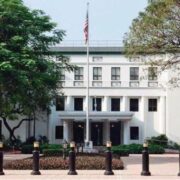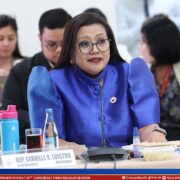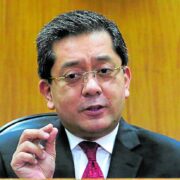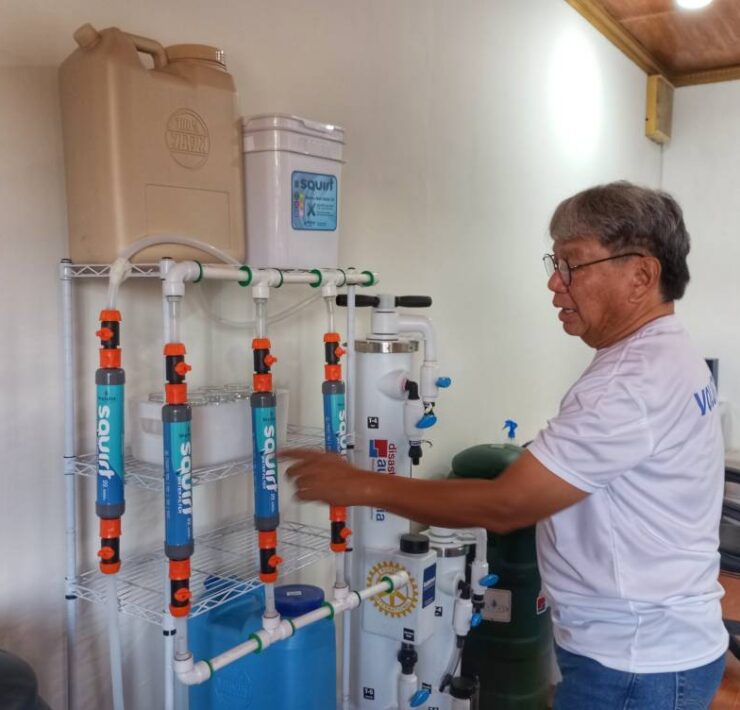A dangerous, critical situation

As executive secretary in the Marcos administration, Lucas Bersamin was primus inter pares in the Cabinet given the mandate of his office—”to directly assist the President in the management of affairs of the government as well as to direct the operations of the Executive Office.” He was the “Little President,” serving as gatekeeper, chief lieutenant, and main implementer of his boss’ directives—the majordomo of the house, so to speak.
That was just days ago, when Bersamin was seemingly safely ensconced in his Palace seat, the President’s trust in him never previously brought up as having become precarious. In September, former Public Works Undersecretary Roberto Bernardo had alleged that Bersamin was among several government officials who received kickbacks from flood control projects. The whirlwind of scandal that President Marcos had triggered with his original tirade in his State of the Nation Address against corrupt private contractors and Department of Public Works and Highways (DPWH) officials had now reached the Palace walls, and its official caretaker was being swept up in the gale.
But Bersamin quickly issued a categorical denial, insisting on his “untarnished record as a long-serving public servant,” and the accusation became stale news soon enough as bigger bombshells hogged the headlines.
Most corrupt
Then came former Ako Bicol party list Rep. Zaldy Co, finally breaking his silence after becoming a fugitive rather than returning to the country to explain his part in the billions of pesos said to have been mishandled when he was appropriations chief at the Lower House. Before this, the useful narrative for the administration was that various lawmakers in cahoots with rogue DPWH officials and private contractors had been milking the public till dry with substandard or even “ghost” projects.
But, according to Co, in the case of the 2025 budget that had been decried by quarters as the most corrupt in the nation’s history, the scheme began in Malacañang—and that the hated budget “insertions” that became kickbacks down the road led back to the President himself.
Co said that in late 2024, he got a call from Budget Secretary Amenah Pangandaman informing him that Mr. Marcos allegedly wanted P100 billion worth of insertions in the 2025 budget, and that he could verify the directive with Presidential Legislative Liaison Office Undersecretary Adrian Bersamin—a grandnephew of the executive secretary.
The Palace promptly slammed Co’s allegations as “pure hearsay” and “a comedy series.” But days later, the two Bersamins and Pangandaman resigned—”out of delicadeza,” said Malacañang, “to allow the administration to address the matter appropriately.”
Time-honored practice
Taking the fall for one’s principal is a time-honored practice in politics, allowing the top guy to shift blame toward underlings and saving the putative larger project from ruin. Bersamin and Pangandaman’s quick recourse to it appeared to be an honorable gesture, and one quite rare since many public officials in this country would rather cling to power brazenly than quit amid allegations of impropriety.
Except—Bersamin, it turned out, didn’t quit. He was simply told, and not even by his boss, that he had to go. Per Bersamin, that fateful call did not come from Malacañang but from “a very close friend,” which sent him packing and informing the President “by text that I had no problem exiting.”
What a bungling state of affairs this reveals about the Palace—and one that Bersamin himself had a direct hand in, since he was its chief caretaker from the beginning. If Sen. Panfilo Lacson is right—that the kickbacks from the alleged P100-billion insertions went to two Palace underlings, Bersamin’s controversial grandnephew and Education Undersecretary Trygve Olaivar, both of whom “misrepresented” the President, according to Lacson—then blame for that environment of corruption and wrongdoing right in the seat of power must be laid at the feet of Bersamin, who was supposed to oversee everything in that house.
Implement a reset
Whether he resigned voluntarily or was forced out, Bersamin had to go one way or the other, to give the Marcos administration the opportunity to clean house and implement a reset. Which is exactly what it needs at this point.
As the political uncertainties mount over the massive flood-control projects scandal shaking up the country, the economy is taking a hit and business confidence is listing hard. It’s paramount for the President to steady the ship by demonstrating that he is firmly in control, that he has answers and receipts against Co’s damning allegations, and that the people’s anger will amount to prompt and proper punishment for the plunderers and criminals in public office.
Bersamin’s chaotic departure indicates a Palace in alarming disarray, now seemingly unable to manage the maelstrom it had chosen to unleash, for whatever end game the President may have had in his head.





















Strengthening PH disaster mental health system